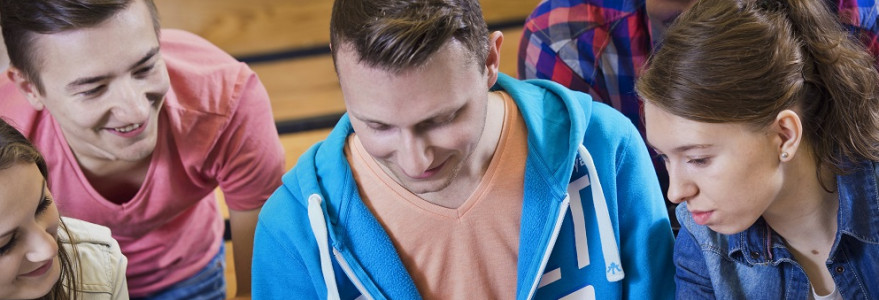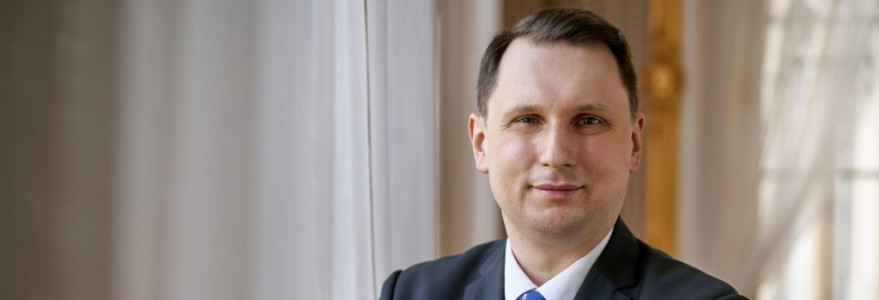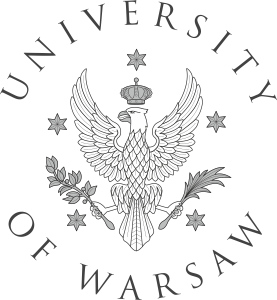Seminar CeNT 15.10.2021
11 października 2021The Centre of New Technologies invites to a webinar by
Andrei Lupas,
Max Planck Institute for Developmental Biology, Tybinga, Niemcy
Title: The revolution in protein structure prediction
Date: 15th October 2021, Friday
Time: 1:00 pm (Central European Summer Time)
Host: dr Stanisław Dunin-Horkawicz
Zoom link: https://us02web.zoom.us/j/82426581314
Seminars can also be watched in the Auditorium (room 0142).
To subscribe to receive announcements about CeNT UW seminars or to unsubscribe please click here
CeNT-UW-Webinars-instruction-for-attendees
Abstract:
I was the assessor for high-accuracy models in last year CASP experiment (Critical Assessment of Structure Prediction), in which computational groups try to predict the three-dimensional structure of proteins for which neither they nor the organizers know the answer at the time of prediction. For the first time in CASP history all targets ended up being high-accuracy targets, because one predictor (AlphaFold2) predicted structures at an accuracy that often rivaled that of experimental methods. After being actively engaged in CASP for over two decades and seeing essentially no progress between 2002 (CASP5) and 2016 (CASP12), I had given up hope that the protein folding problem would be breached in my lifetime, but now it has. I will cover as far as I can the main questions I am constantly asked: What happened at CASP14? Are AlphaFold2 predictions as good as crystal structures? Is the protein folding problem now solved? Does AlphaFold2 predict protein interactions? Dynamics? Unstructure? Where do the other leading groups stand (Baker, Zhang, Tencent)? I will also try to outline some thoughts about how this will impact the Life Sciences.
An announcement for a post-doc position
07 października 2021Position of post-doc (a group of science positions) in the research project entitled „Theoretical design and prediction of phosphorescent emissive materials based on halogen bonding interactions and experimental verification of their properties” financed by National Science Centre (NCN) is open for application. Project leader: Dr. Mihails Arhangelskis. Deadline for applications: 6 November 2021. For more info see >> pdf
An announcement for Post-doc position
06 października 2021Position of post-doc in the OPUS project 2020/39/B/NZ2/01301 entitled „Development of tools for the rational design of peptide therapeutics” financed by the National Science Centre, Poland, is open for application. Project leader: dr hab. Sebastian Kmiecik. Available positions: 2. Deadline for applications: 6 November 2021. For more info see >> pdf
Cultural Orientation Workshops at UW 2021

Welcome Point will organise “Cultural Orientation Workshops”. Its main goal is to provide all newcomers at the University of Warsaw with tools that will ease their life in a new place at the very beginning. The event will be held on 15th October.
Welcome Point of the University of Warsaw is organising “Cultural Orientation Workshops” for international students (long-term students only).
The event is organised to help international students at UW earn more about Poland, the city of Warsaw, culture shock experience, communication in a multicultural environment, and more.
The workshop (in English) will take place on 15th October between 10:00 am and 4:30 pm at the Volunteer Centre of the University of Warsaw office (in the building of the University of Warsaw Library, 56/66 Dobra Street).
It will be conducted by Katarzyna Kucharska, a trainer from the Volunteer Center of the University of Warsaw.
Application deadline: 8th October, midnight. To participate, one needs to register.
Source: www.en.uw.edu.pl
Seminar CeNT 8.10.2021
04 października 2021The Centre of New Technologies invites to a webinar by
Csaba Szántay,
Title: What makes „a good researcher”? Part II
Date: 8th October 2021, Friday
Time: 1:00 pm (Central European Summer Time)
Host: dr hab. Krzysztof Kazimierczuk
Zoom link: https://us02web.zoom.us/j/82426581314
Seminars can also be watched in the Auditorium (room 0142).
To subscribe to receive announcements about CeNT UW seminars or to unsubscribe please click here
CeNT-UW-Webinars-instruction-for-attendees
Abstract:
Do renowned researchers owe their success to the fact that they are simply more „talented” than others, or is there some other „secret” involved? What exactly is the nature of their special „talent”? Can that „talent” be learned? Are you, as a potential researcher, struggling with the question whether you are „talented” enough to build a successful and fulfilling career in research? What kinds of competencies are required in that regard from a researcher by the various research institutions or industrial research sites? Should you choose the industry or academia for your research career? Does the university provide you with the right kind and right amount of knowledge so that you can „make it” in the „real world”? If not, in what ways should you improve yourself? What is (or should be) the true merit of a PhD degree (besides its ego-boosting effect that you can put „Dr.” in front of your name) when you start your workeither in academia or in the industry? Douniversities fully realize what skills should be mostly developed during a PhD program? Do research facilities fully realize what they can or should expect from such PhD programs? What skills are needed to be demonstrated in a job interview? Although these questions, and many related ones, are of utmost importance at an individual as well as an institutional level, they are typically not addressed with sufficient conscientiousness, and are poorly understood by all involved parties, i.e. students, supervisors, research institutes and industrial R&D facilities, etc. Furthermore, the topic is surrounded by many misguided stereotypes and myths, especially about what it means to be „talented” as a researcher, which can have rather negative practical consequences. In this admittedly somewhat off-the-wall, and perhaps even provocative, presentation I will attempt to discuss these issues on the basis of having gained quite a lot of experience as a researcher as well as a manager of a research unit in both a heavy-duty pharmaceutical industrial research environment, and also in a university setting. Based on this experience, I will argue that while technical expertise and a sufficient degree of „smartness” are of course important qualities, the „talent” that really matters in the long run is dominated by skills that will be referred to as „attitude competencies”. I will mention a number of such skills, including the attitude-driven ability to avoid the „mental traps” that can easily affect even the smartest and most experienced scientific minds. 1 In all, the messages to be conveyed will probably be surprising, but hopefully also inspiring with a positive outlook on the „secret” of being a „good researcher”.
Online meeting with the UW Vice-Rector for Students: Coverage
01 października 2021
The organisation of education, scholarships, residential halls were the most popular topics addressed during an online meeting with Prof. Sławomir Żółtek, the UW Vice-Rector for Students and Quality of Teaching. The Facebook live is saved on the UW profile on Facebook. The recorded broadcast is available on the UW profile on YouTube channel and the UW profile on Facebook.
All of us from the administrative staff of the University of Warsaw, we are happy that we are coming back to on-site classes. On the other hand, we also feel slightly anxious. It is quite normal in this situation. The added value of the University is that we can meet in person, we can carry out research and study. It can be only made fully available when we study on-site,” said Prof. Sławomir Żółtek, the UW Vice-Rector for Students and Quality of Teaching.
On 28th September, Prof. Sławomir Żółtek, the UW Vice-Rector for Students and Quality of Teaching, was answering questions asked by students regarding, among other things, the organisation of education at the University of Warsaw in the upcoming academic year. The meeting was held on the UW profile on YouTube (in Polish) and on the UW profile on Facebook (in English). Below, we present some of them.
The number of COVID-19 cases has been increasing lately. Therefore is it safe to go back to the University, and was the decision to go back to university well-thought?
Concerns about this matter were clear to the entire Rector’s Team when deciding to return to the University. I would like to direct your attention to two things. We were the first university to decide to go back to on-site teaching. We have decided that in April 2020. The second thing is that we need to maintain a certain level of teaching. Online teaching is an alternative, good enough for the lack of teaching at all. However, this is not a proper alternative for on-site teaching.
In August, the regulation of the Minister of Education and Science as of 25th February 2021 on temporarily limiting the operation of universities during the COVID-19 pandemic, was repealed. In this light, universities have no other possibility than returning to their regular mode of work.
Experience and experts’ opinions tell us that COVID-19 will not disappear in months. Current observations suggest COVID-19 will stay with us a little bit longer. It makes us think about a long term perspective regarding teaching and learning. Fortunately, the vast majority of students, namely 82% is vaccinated. When it comes to new students, the share of vaccinated is as high as 90%. These data concern those students and doctoral candidates who took part in a survey on the level of vaccination. This joint effort allows you to actually return to normal functioning.
Why is not everyone from the UW community obliged to cover the mouth and nose? How will the enforcement of wearing masks during classes look?
There is an ordinance of the Council of Ministers of 6th May 2021 on the establishment of certain restrictions, orders and bans due to the state of an epidemic (Journal of Laws 2021 item 861). This act points out the necessity to wear protective masks covering the mouth and nose. We are obliged to observe the law. In paragraph 25.4, the act speaks about exceptions. When it comes to students and doctoral candidates, there is no exception. In contradiction to that, there are exceptions for pupils who do not have to wear masks. Academic teachers as persons performing professional activities are not required to cover their mouth and nose while working. According to the ordinance of the Rector, it is the teacher who decides on wearing masks during certain classes. The ministerial regulation indicates that the removal of protective face masks may take place due to the possibility or quality of the provision of a given service.
Will employees, doctoral candidates and students be offered free of charge PCR tests?
Employees and doctoral candidates of the University of Warsaw can book free of charge COVID-19 RT-PCR tests until 31st December. The decision to offer such tests in 2022 will be made based on interest by the end of the current calendar year. So far, there are no plans to include students in the programme.
Who decides that selected didactic classes may exceptionally be conducted remotely?
Ordinance no. 111 of the Rector of the University of Warsaw of 16th September on the organisation of classes, examinations and credits in remote mode, defined the subject responsible for making this decision. Students can turn to the head of their teaching unit, usually the vice-dean for student affairs, who should issue an appropriate ordinance by 30th September, specifying which classes will be held online. Typically, this kind of information is available on websites of departments or their profiles on social media.
Will extramural studies be also held on-site?
Extramural studies can be held remotely. Some units are working online in this regard. We will be listening to the community because those classes that you have to attend every two or three weeks have received requests for fully remote mode, but it all depends. I have discussed the matter with my faculty professors. Some extramural students are willing to have online education, whereas some expect to come back to university. The head of the teaching unit needs to consult the Student Council and take a wise decision.
Will libraries return to pre-pandemic activities?
Yes, from the new academic year, libraries should function as usual.
Will absences from classes due to quarantine/isolation be excused?
If under quarantine, according to ordinance no. 112 of the Rector of the University of Warsaw of 16th September 2021, students can benefit from excused absences.
How can I get a place in a residence hall?
The UW Office for Welfare Support deals with the issue of registration to residence halls. So far, three registration rounds have been carried out, and there are still ca. two hundred places left. Hence the decision to start additional registration in the token system. Students can also submit an appropriate application in case a place becomes available. At present, there are approximately 2 350 places in all dormitories at the University of Warsaw. The change in their number, compared to last years, results from the resigning from 3-person rooms and returning to accommodation for residents also in double rooms. At the same time, we try to raise the standard of these premises.
What percentage of students will get the Rector’s scholarship in the next academic year?
This scholarship will be awarded to 10% of students of a given field of study – this is the upper limit of the number of people who can receive the Rector’s scholarship, set out in the Law on Higher Education and Science (Journal of Laws of 2018, item 1668). The more people receive it, the lower amount it is, so we will consult the UW Student Council about the percentage of the eligible for this scholarship.
A student from Nigeria has difficulties in obtaining a visa (being still in their country). Will the person be able to participate in the winter semester classes online?
Remote teaching is an alternative for lack of teaching at all. We want to treat all the people equally and guarantee them equal access to education services. We can support that person to obtain a visa and ask deans to get involved in the process. We see and address this problem. I would not like to differentiate between those students who are here and those who are abroad.
Do I have to pay for my studies if I am still waiting for my C1 exam in Polish? I have seen at USOS that I have to pay, and the lady at the dean’s office told me that I will be crossed out from the student list in case of no payment.
The deadlines for payments are set by deputy deans. 30th September is a binding deadline. Students who have not paid will be removed from the student list – it is regulated by ordinance no. 130, and there is an entire procedure of removal. Students should be notified before. Only after 14 days from that notification, the student will be removed from the student list. It is, however, reversible. More details are available in Rector’s ordinance no. 130.
The meeting was broadcast on the UW profile on YouTube (in Polish) and the UW profile on Facebook (in English).
Source: www.en.uw.edu.pl

